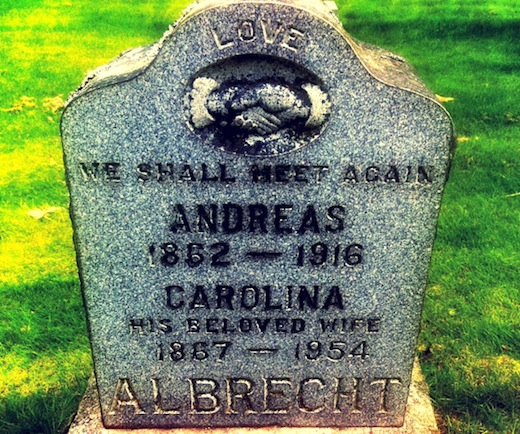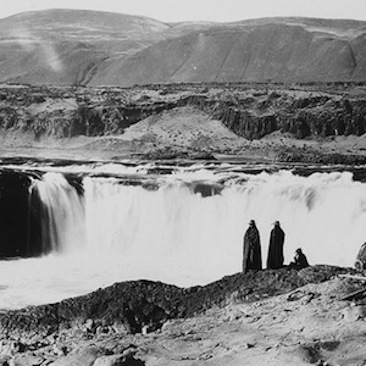Walking among the graves of strangers on a sunny spring afternoon made me neither sad nor worried about mortality. It did have another effect: the sparse information on tombstones left me imagining the lives of people from other times and other places. They came to life again, however briefly, as I pictured the families they built and the loved ones they lost. All the dead at my feet surrounded me with vanished stories of joy and tragedy. Maybe that’s why I volunteered to take pictures at cemeteries for Find A Grave, a crowd-sourced service that has amassed 78 million grave records. The records have helped me piece together far-flung evidence of my own ancestry, including photos of grave sites of long-dead relatives. So yesterday for the first time I returned the favor.
Andreas and Carolina Albrecht were not part of my assignment at the sprawling Rose City Cemetery. I came upon their final resting place after stepping carefully amid dozens of graves. Their marker, smaller than many, stood out. It was the message engraved in the stone. Had they agreed on it before Andreas died in 1916? Or was it Carolina’s idea, conceived some time during the thirty-eight years she survived after her husband’s death? The message left me wondering about the intensity of their love and how lonely Carolina might have been for nearly four decades without Andreas. She wasn’t alone. As I later learned, the Russian emigres had seven children. Most of all I wondered whether their wish came to pass in death. Not a wish really, more like a declaration of utter certainty:
We shall meet again
We can only hope that one or both of the Albrechts knew something the living don’t.



Comments on this entry are closed.